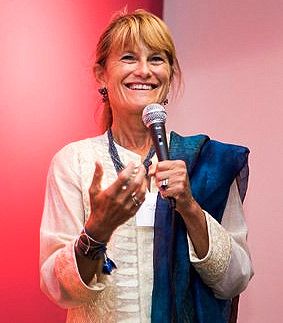
While Silicon Valley is building apps to deliver ice cream at 2 am, Jacqueline Novogratz, founder and CEO, Acumen, tells Niraj Bhatt the really interesting entrepreneurs are taking on the world's problems like poverty, where India becomes not only the marketplace, but also the laboratory.
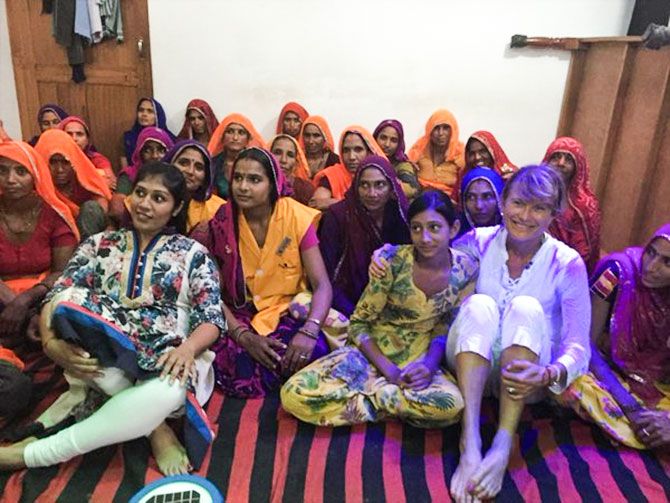
When Jacqueline Novogratz was speaking at an event about Acumen's $1.5 million investment in a low-cost emergency ambulance service start-up Ziqitza Health Care in 2007, a prominent Indian businessman had looked at her like she was some Don Quixote and almost laughed her off the stage.
He said nine ambulances the operation would make no difference in Mumbai, and that smart people like her investing their brain power in such small things was exactly what was wrong with social enterprise.
Since then, both Ziqitza and Novogratz have come a long way.
As an impact investor, Acumen's investments have multiplied manifold at $106 million across 96 companies.
Ziqitza is among the top five ambulance companies in the world, with nearly 3,000 ambulances today.
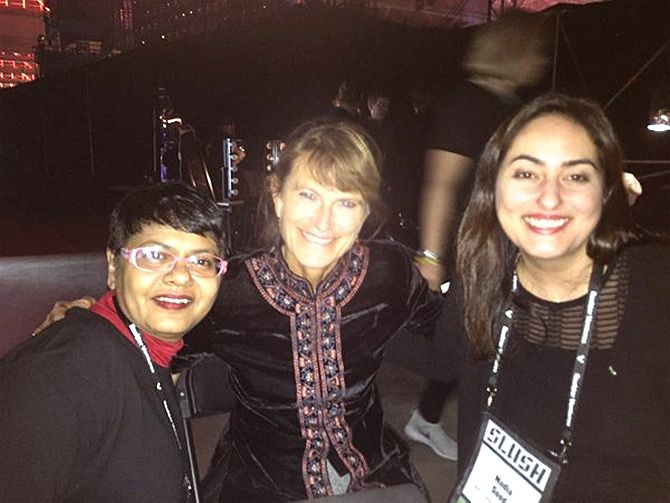
Novogratz started Acumen with the objective to revolutionise philanthropy to tackle poverty.
She had realised that markets alone couldn't solve problems and charity and government aid have their shortcomings.
She followed the path of 'patient capital', which can take high risks for the long term and bridge the gap between the social impact of philanthropy and the efficiency and scale of a market-based approach.
The fund's donations are invested in entrepreneurs, who are building innovative businesses to serve the low-income segment.
Besides early-stage equity and debt, Acumen comes on board to help the business grow and attain scale.
Acumen's focus is on energy, health care, education and agriculture, where markets can play a role.
In India, Acumen has invested $28 million in 25 enterprises.
We are meeting for lunch at Pali Bhavan in the Mumbai suburb of Bandra, close to Acumen's India office. After ordering a pomelo and roasted coconut salad and mushroom galouti kebabs with fresh lime soda, which we plan to share, we return to Ziqitza's story.

Ziqitza was the first to respond on the night of the terror attack in Mumbai on November 26, 2008.
Its staff was going inside the Taj Mahal Palace Hotel and rescuing people without bulletproof jackets even as terrorists were still inside.
"That's when I thought that we must be doing something right," she says.
The ambulance company has provided stellar service in calamities like cyclones, and has transported close to six million patients and delivered more than 10,000 babies in ambulances.
Ziqitza has a robust business model and has been awarded $80 million in government contracts to provide free or subsidised service under the public-private partnership model.
While it transports accident and disaster victims, and unaccompanied victims free of charge, some patients pay a small fee.
An investment from Acumen also results in other investors taking the enterprise more seriously.
"For every dollar that we invest," Novogratz says. "another five dollars follow."
Ziqitza has investments from a subsidiary of US-based ambulance service provider American Medical Response Inc, HDFC, IDFC and India Value Fund.
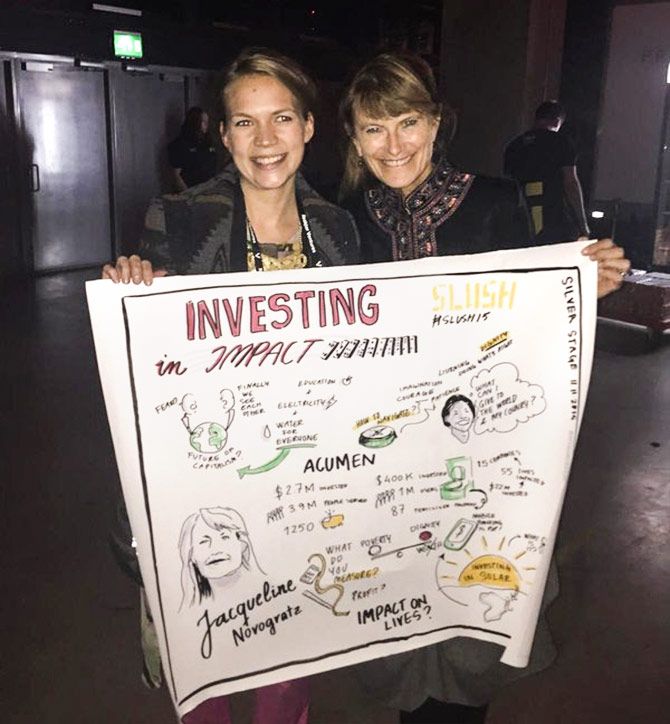
While Silicon Valley is building the latest app to deliver ice cream at 2 am, the really interesting entrepreneurs are taking on major problems of society, poverty, where India becomes not only the marketplace, but also the laboratory.
In 2001, when Acumen was started, it had a hard time finding the right investment -- either there were charities or for-profit companies targeting the middle class.
After evaluating 700 organisations, Acumen made its first investment in the Madurai-headquartered Aravind Eye Care System, which has revolutionised eye surgeries.
Its radical idea of a hybrid price structure at large scale has resulted in two-thirds of the patients paying nothing or near nothing, and the hospital is still profitable.
Founder Dr G Venkataswamy has been a major influence on Novogratz.
"In many ways Aravind is our spiritual home and we stand on Dr Venkataswamy's shoulders and try to live up to his standards," says Novogratz.
"We started with India as we believed it was the laboratory for innovation and, 15 years later, I feel more excited and certain of that today," she says.
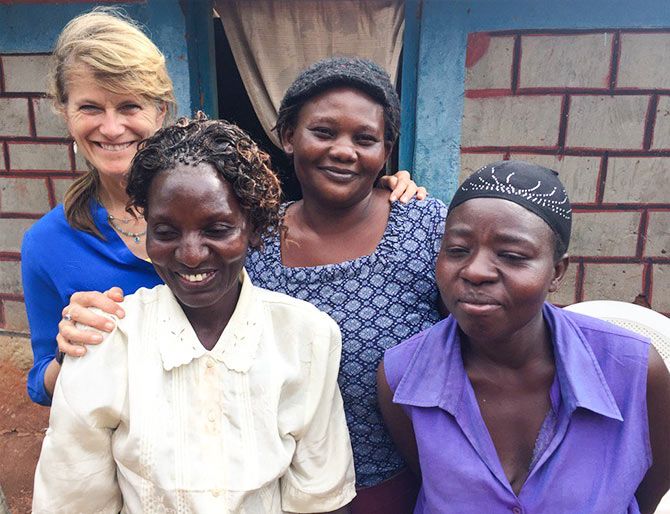
Acumen has invested in Drishtee, which brings Internet to villages along with computer education, consumer products and e-governance at its kiosks.
"We went to East Africa, too, as the market approach to alleviating poverty should work anywhere," she says.
Novogratz has worked in East Africa for several years.
Acumen is also present in Pakistan, South America, West Africa and recently, the US.
Explaining the reason for starting impact investing in the US, she says, "We no longer have rich and poor countries; all countries have the developed world and the developing world within."
Novogratz asks for another fresh lime soda and over a lunch of lotus stem and water chestnut curry and lasooni palak, she talks about how she came into impact investing.

She began her career in the 1980s as an international banker at Chase Manhattan on Wall Street.
That was the time when South American countries were defaulting on loans, the money was being siphoned off to the Cayman Islands, while the people of these countries couldn't even walk into a bank.
She learnt about Ela Bhatt's Sewa Bank and Mohammed Yunus' Grameen Bank, quit the bank and accepted a job that took her to Africa, where she co-founded Rwanda's first microfinance institution.
Along the way she also did an MBA from Stanford. In 1999, she thought of the fund, which became operational two years later.
I ask her about the coming job crisis, as automation and artificial intelligence could lead to a significant increase in unemployment, especially in a country like India.
She says she is not pessimistic and that new industries like beauty salons catering to low-income communities will create jobs.
Ziqitza has 6,000 people on its rolls.
"Also, we have to redefine the idea of a job and it's not necessary that jobs are going to be nine-to-five office or factory jobs in the future."
Its investee company, D.Light, which provides solar-powered solutions to the poor in 62 countries, has 10,000 distributors.
"Retailers, who could be a housewife or a farmer, source the solar lamps from these distributors and sell these lights to their neighbours," says Novogratz.
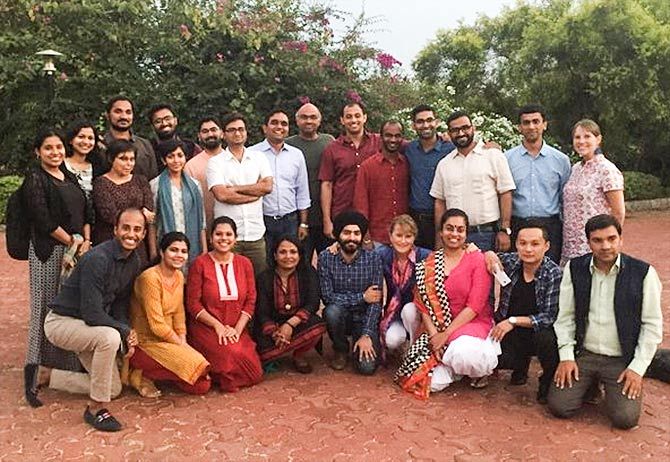
Acumen has an investment in Labournet, which provides training to migrant, unorganised sector workers such as in the construction or leather tannery sectors, and provide training and certification.
Labournet has trained half a million workers so far and trains 150,000 a year now.
In order to measure the performance of its investee companies and bring transparency to philanthropy, Acumen developed the lean data approach to measure social performance where it uses standardised questions and SMS.
It also runs a programme to train the next generation of social impact leaders, where it has trained 97 fellows so far.
Novogratz is thinking of two things these days.
"We are in a world where markets and technologies connect us like never before in history and those same forces are bringing in extraordinary inequality and division, which could easily tear us apart," she says.
She is working on building bridges across these divides, finding innovations and creating more inclusive models.
"I am also looking at India to become a self-sustaining, locally-funded entity by and for India, with world-class investments, and pioneering the next level of innovation and connecting that to other parts of the world," she says.
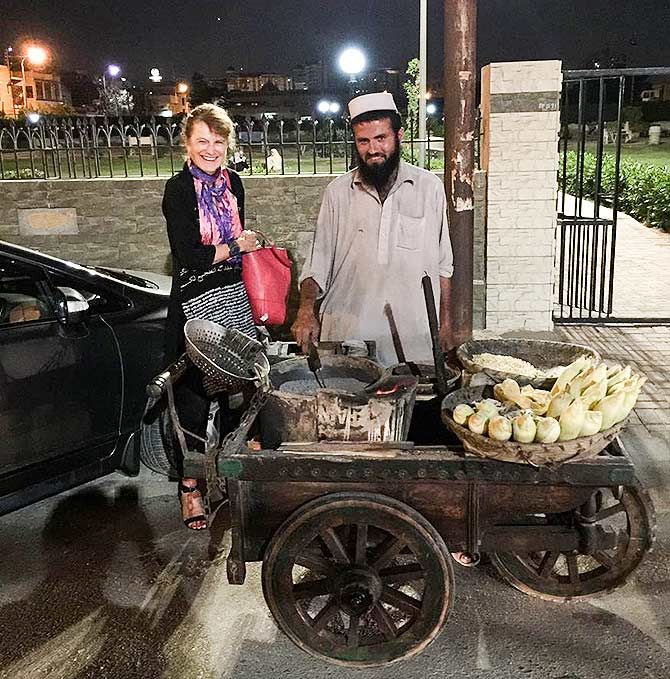
India is one of the most innovative countries on the planet, but much of the innovation is lost due to lack of capital, mentoring and scale, she believes.
"There is tremendous ingenuity in Indian for-profit entrepreneurs and companies and if we have them as partners financially and in thoughts and ideas, then the opportunity to scale up in this space is huge."
"The ability of Indian business leaders to be change agents is fantastic if they are convinced," she says.
A local fund in India is Acumen's immediate target.
After that, Acumen plans to take this model of individual self-sustaining businesses, leaders and ideas worldwide.
"We then represent a new way of tackling poverty for the world. We have very big ambitions," Novogratz says, as we finish lunch.










 © 2025
© 2025